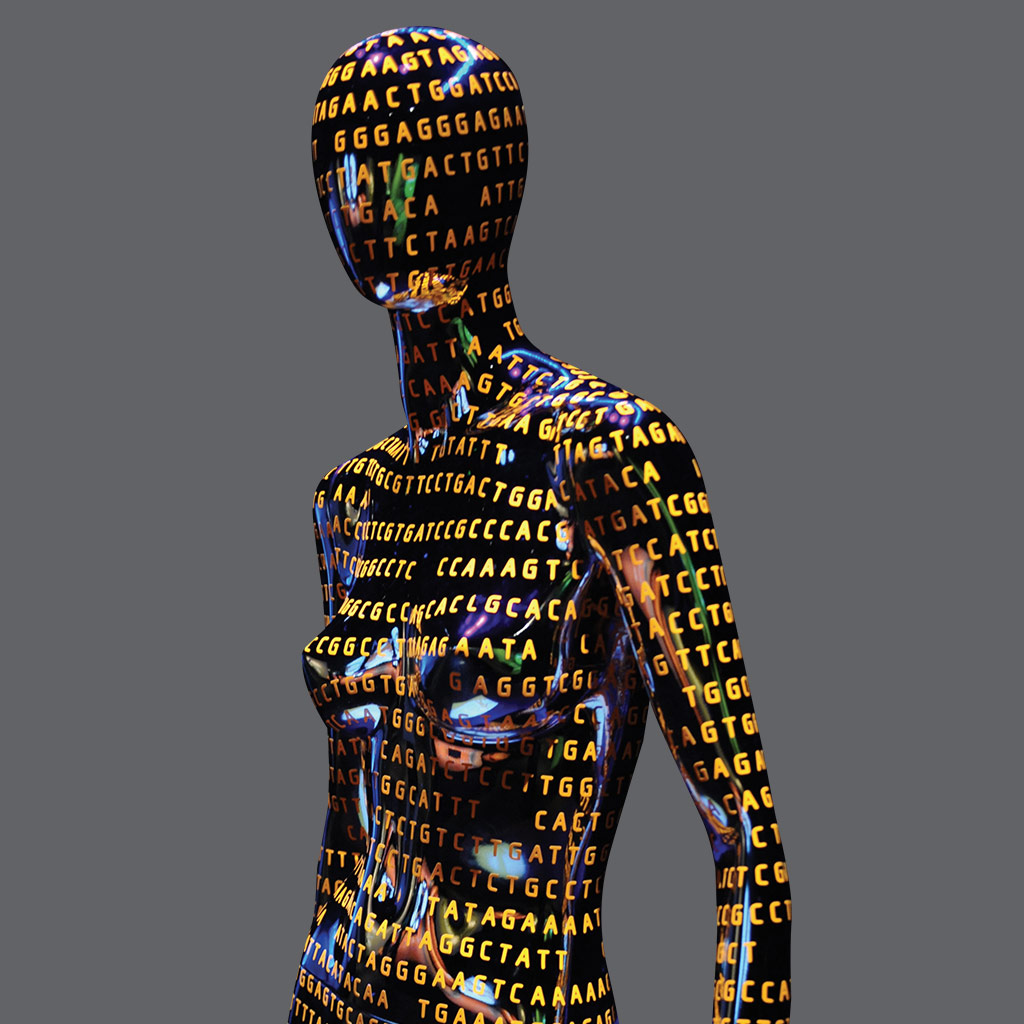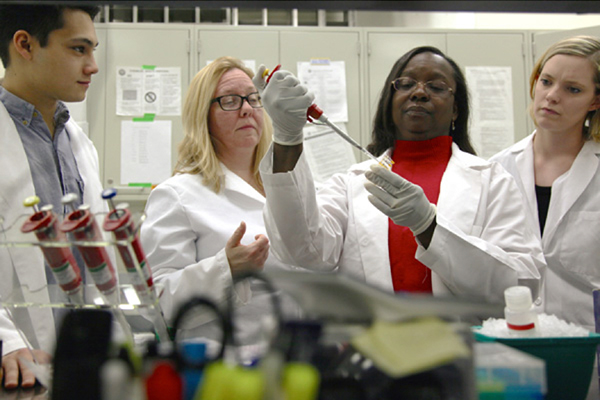
The Partnership for Public Service, which grants the annual Service to America or "Sammies" awards, recently honored NHGRI's Scientific Director, Dr. Dan Kastner, as the Federal Employee of the Year. Often referred to as the "Oscars of government service," the Sammies are annual awards that recognize exceptional civil servants who have made significant and innovative contributions to the health, safety and prosperity of the American people. The Sammies are named after the Partnership for Public Service's late founder, the Samuel J. Heyman, who was inspired by President John F. Kennedy's call to serve in 1963. Dr. Kastner received the Sammie's highest honor as the Federal Employee of the Year.
In his over 30 years of federal service, Dr. Kastner has been a truly exceptional and highly productive physician and scientist, making ground-breaking discoveries about human autoinflammatory diseases. He has identified the molecular causes of an impressive list of human illnesses, proposed a now widely-accepted explanation for immune disorders, identified critical insights into innate immunity, and pioneered the use of targeted therapies. All of these contributions have had a major impact on the lives of patients.
Dan originally joined NIH in the mid-1980's as a Rheumatology Fellow. There, he began his life's work on rare human illnesses characterized by seemingly unprovoked recurrent fevers and inflammation. These illnesses, which were categorized as 'periodic fevers,' were poorly defined, with little known cause, course, or treatment. Since that time, Dan has established the field of autoinflammation and become its intellectual driver. He discovered the first autoinflammatory disease genes, proposed the concept of autoinflammation, and discovered and characterized numerous additional autoinflammatory disease genes.
Dan's work with patients has yielded clinical, genomic, and immunological analyses of these rare human autoinflammatory illnesses. In doing so, he has opened new fields of biology and medicine and has had a profound and growing impact on patient care. By identifying and defining the molecular basis of these illnesses, Dan's efforts have enabled patients to obtain genetic diagnoses for their conditions, which had previously been indistinguishable from similar types of conditions. His numerous achievements include discovering new molecules in the human innate immune system and providing important insights into their function; defining a new class of immune disorders, the autoinflammatory diseases, that are now recognized to be illnesses caused by changes in the innate immune system; and laying the foundation for the use of targeted therapies in these diseases, as well as in more common inflammatory conditions.
In the 1990's, Dan organized and led an international consortium that used positional cloning to identify MEFV, the gene mutated in familial Mediterranean fever (FMF). MEFV encodes what was then a novel protein, but is now recognized as the prototype for a domain identified in 20 proteins involved in inflammation and cell death (a key to innate immunity). The identification of MEFV both enabled genetic diagnosis of FMF and allowed for the identification of patients with periodic fevers who did not have mutations in MEFV. Dan subsequently led the effort to identify other autoinflammatory disease genes, which prompted the discovery of a dominantly-inherited condition he named TRAPS (Tumor Necrosis Factor receptor-associated periodic syndrome). In the initial description of TRAPS, Dan proposed the concept of autoinflammatory disease to denote a group of disorders in which the innate immune system plays a primary pathogenic role. Dan and his colleagues also pioneered the use of targeted therapies in the autoinflammatory diseases, including the likely first use of an IL-1 inhibitor in FMF. As a direct result of Dan's work, children who would otherwise be severely disabled or would have succumbed to their illnesses are now attending college.
At the NIH Clinical Center, Dan has established a large referral clinic that is the gold standard for patients with undiagnosed inflammatory illnesses from around the world. Through the careful study of these patients, Dan and his colleagues have discovered the genes underlying, and in some cases defining, a number of illnesses. In addition to the many rare genetic variants discovered, Dan's group has had an important role in identifying a number of variants that contribute to susceptibility to common disorders such as Behçet's disease, rheumatoid arthritis, and systemic lupus erythematosus.
Since the beginning of his federal career at NIH, Dan has worked his way through the ranks. His original Rheumatology fellowship at the National Institute of Arthritis and Musculoskeletal and Skin Diseases (NIAMS) turned into an investigator position there, and then in 2005, he was appointed NIAMS Clinical Director. In 2008, he was also appointed as the first NIH Deputy Director for Intramural Clinical Research. Dan joined NHGRI in late 2010 as Scientific Director and Director of the Institute's Division of Intramural Research.
Dan's prodigious set of accomplishments have brought him numerous awards and honors, including election to the National Academy of Sciences in 2010 and to the National Academy of Medicine, previously the Institute of Medicine, in 2012. He can now add to that list the 2018 Sammie's Federal Employee of the Year designation, an incredibly well-deserved honor. NHGRI offers its sincere and heartfelt congratulations to Dan!
![]()






